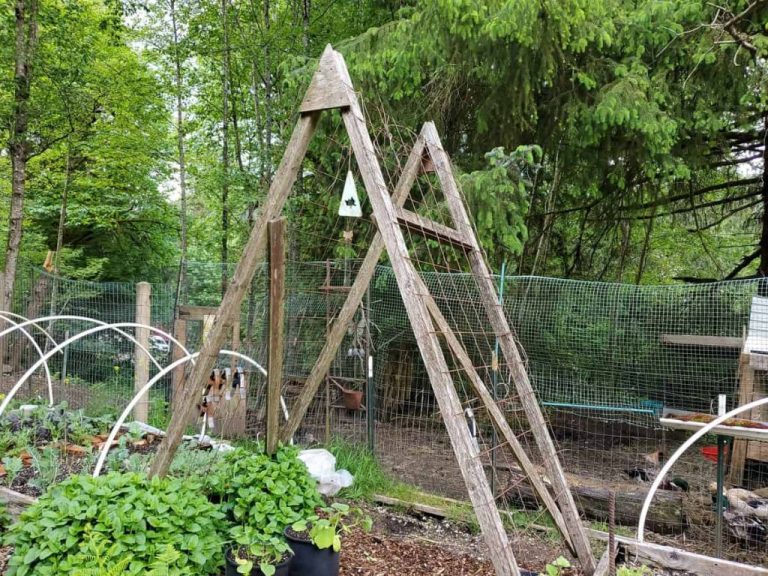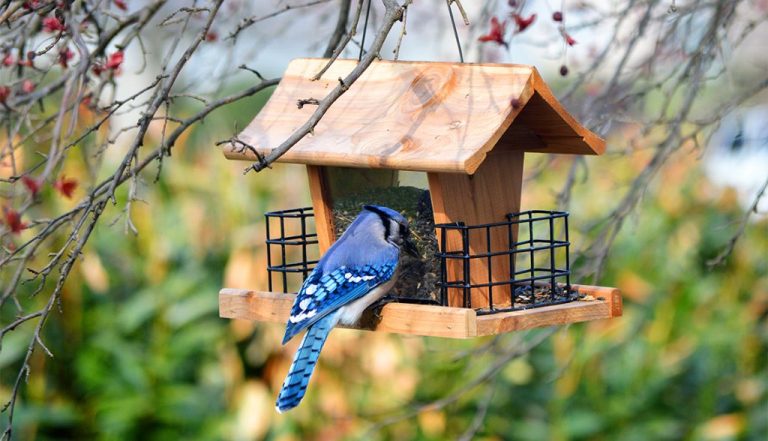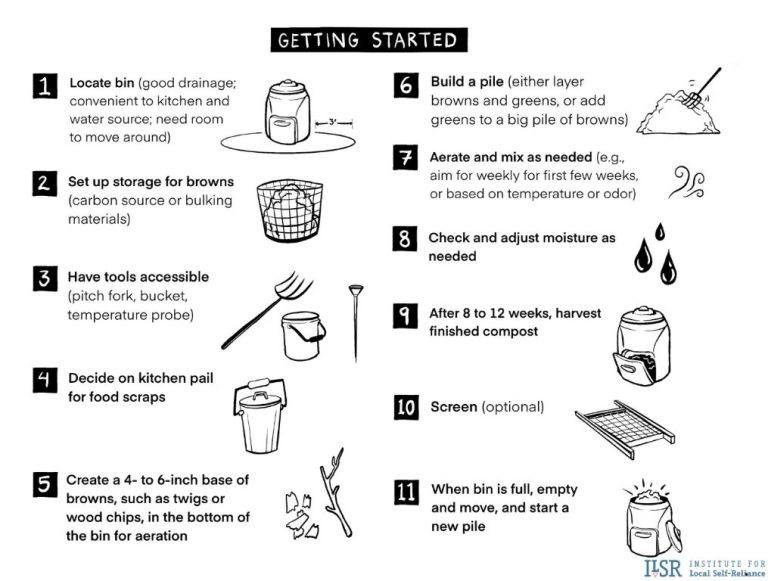Homemade Garden Pest Control: Natural Solutions For A Healthy Garden
Natural pest control in the garden offers the opportunity to protect plants from harmful insects and diseases without using synthetic chemical pesticides. Natural pest control relies on non-toxic solutions that work in harmony with the garden ecosystem. There are a number of benefits to using organic methods over synthetic chemicals to control pests.
Organic pest control is better for the beneficial insects such as bees and butterflies in the garden. Synthetic chemical pesticides kill indiscriminately, harming beneficial species as well as pest species. Natural solutions can specifically target pests while allowing beneficial insects to thrive.
Synthetic pesticides can also leave harmful residue in the soil and on plants that can make its way into our food supply. Natural pest control methods such as companion planting, natural insect predators, and organic sprays are less toxic and leave little to no residue, making the garden produce safer to consume. https://heropestcontrol.com/5-pros-and-cons-of-organic-and-natural-pest-control/
Experts recommend using an integrated pest management approach that combines multiple organic pest control techniques to keep pests at bay while minimizing risks. With some planning and proactive maintenance, a flourishing garden can be cultivated using safe, natural methods.
Identify Common Garden Pests
Some of the most common garden pests include:
Aphids
Aphids are small, soft-bodied insects that come in a variety of colors like green, black, brown, pink, and white. They feed on plant sap and secrete a sticky substance called honeydew which can lead to mold growth. Check the undersides of leaves and new shoots for clusters of these pests. Spraying plants with a strong stream of water can help remove aphids (1).
Snails and Slugs
Snails and slugs are mollusks that chew holes in plant leaves, flowers, and stems. They thrive in damp conditions and leave behind a telltale slime trail wherever they go. To control them, remove debris where they like to hide, use physical barriers like copper tape, or put out dishes of beer to trap them (2).
Beetles
Many types of beetles can become garden pests. Japanese beetles and June beetles feed on fruit trees, roses, and other ornamentals as adults and damage plant roots in their larval stage. Other beetles like flea beetles and cucumber beetles chew small holes in plant leaves while others bore into stems and fruits. Handpick adults, use row covers, or apply neem oil for control (3).
Fungus and Mold
Excess moisture and poor air circulation often lead to fungus and mold issues. Common fungal diseases include powdery mildew, downy mildew, botrytis, and rust. Improve airflow, water at the base of plants, use drip irrigation, space plants properly, and remove affected material to manage fungi. Products containing neem oil or copper may help prevent infection (4).
Sources:
(1) https://www.planetnatural.com/pest-problem-solver/garden-pests/aphid-control/
(2) https://www.hgtv.com/outdoors/gardens/planting-and-maintenance/how-to-control-snails-and-slugs
(3) https://www.almanac.com/pest/beetles
(4) https://www.planetnatural.com/pest-problem-solver/garden-pests/fungus-control/
Companion Planting
Companion planting is an organic gardening technique that utilizes strategic plant pairings to repel pests and attract beneficial insects. Certain plants give off repellent odors or chemicals that can deter specific pests from infesting other plants nearby. Some of the most effective pest-repelling companion plants include:
Basil – When planted near tomatoes, basil can help repel aphids, mosquitoes, flies, and spider mites. It also helps control tomato hornworm.
Borage – This herb repels tomato hornworms when planted alongside tomatoes. Its flowers also attract pollinators.
Marigolds – Interplanting marigolds throughout the vegetable garden helps deter aphids, whiteflies, squash bugs, nematodes, and other pests.
Garlic and chives – The strong scent of these alliums can repel cabbage moths, aphids, Japanese beetles, and carrot rust flies.
Petunias – These ornamental flowers repel aphids, leafhoppers, asparagus beetles, tomato worms, and other common vegetable pests.
Nasturtiums – Planting nasturtiums around cucurbits like cucumbers and squash can help repel aphids, squash bugs, and striped pumpkin beetles.
By thoughtfully combining pest-repelling plants together, you can create an organic “bug barrier” and protect your fruits and vegetables from damage.
Physical Barriers
Physical barriers can be very effective at keeping pests away from plants in an organic and non-toxic manner. Some examples of physical barriers include:
Row Covers: Row covers made from fabric or mesh can be placed over plants, anchored to the ground with stakes or rocks. This creates a protective barrier that prevents insects from reaching the plants while still allowing sunlight and water to permeate. Row covers are useful against aphids, beetles, cabbage worms, potato beetles, and other flying insects (Source 1).
Traps: Sticky traps, pheromone traps, and other traps can lure and capture damaging insects like fungus gnats, thrips, beetles, and weevils. Trapping insects prevents them from laying eggs in the garden. Traps should be monitored and replaced regularly for best results (Source 2).
Copper Barriers: Slugs and snails are deterred by copper. Strips of copper foil or wire can be wrapped around garden beds or planters to create a barrier that slugs won’t cross. This can protect vulnerable seedlings and plants from slug damage.
Natural Pest Predators
Introducing natural predators into your garden can help keep pest populations under control. Some beneficial insects and animals that prey on common garden pests include:
- Ladybugs – Both the adults and larvae of ladybugs are voracious predators of soft-bodied insects like aphids, mealybugs, and scale. They can eat up to 50 aphids per day. You can buy live ladybugs to release into your garden or attract them naturally by planting pollen and nectar-rich flowers like angelica, yarrow, and tansy 1
- Lacewings – The lacewing larvae (also called aphid lions) feed on soft-bodied pests like aphids, whiteflies, mealybugs, mites, and insect eggs. The adult lacewings feed on nectar, pollen, and honeydew. Provide habitat for lacewings by allowing flowering plants to grow naturally 2
- Birds – Common garden birds like chickadees, nuthatches, and warblers feast on insects and insect larvae. Place bird houses or bird feeders nearby to attract these beneficial predators.
- Bats – A single bat can eat up to 1000 mosquitoes or other insects in just one hour. Attract bats by building and placing bat houses around the garden’s perimeter.
Check with your local garden center or extension office for advice on purchasing and releasing the most effective predatory insects for your area.
Organic Pest Control Sprays
Organic pest control sprays can be effective at controlling common garden pests in a natural way without using harsh chemicals. Some of the most popular organic spray options include:
Insecticidal Soaps – Insecticidal soaps work by penetrating the insect’s outer layer and causing dehydration. Mix around 5 tablespoons of insecticidal soap concentrate per gallon of water and spray directly on infested plants (source: https://www.almanac.com/organic-pesticides).
Neem Oil – Neem oil comes from the seeds of the neem tree and can disrupt insects’ hormonal systems. Mix around 4 teaspoons of neem oil per gallon of water and spray on infested plants, being sure to coat all surfaces of the plants (source: https://www.treehugger.com/natural-homemade-insecticides-save-your-garden-without-killing-earth-4858819).
Garlic & Chili Spray – The strong odor and spicy compounds in garlic and chiles can deter soft-bodied insects like aphids. Steep around half a bulb of crushed garlic and 1 tablespoon of dried chile pepper in 1 quart of hot water for 24 hours. Strain and mix with 1 teaspoon mild soap and fill with water to make 1 gallon of spray.
Natural Repellents
There are some strong natural scents that can help repel common garden pests without using harsh chemicals. Plants like garlic, onions, chives and other plants in the allium family contain compounds that are offensive to many insects (https://learn.eartheasy.com/guides/natural-garden-pest-control/). Interplanting these throughout the garden can help deter pests from attacking your plants. You can also make homemade sprays by blending or crushing these plants and straining to create a natural repellent.
Pepper sprays made from ingredients like hot peppers, garlic and soap are another easy DIY pest control option. The capsicum in hot peppers is irritating to many soft-bodied insects. Mixing a few tablespoons of cayenne pepper or hot chili peppers with water and spraying plants leaves an irritating residue that deters pests (https://bloominghaus.com/news/how-to-use-plants-for-natural-pest-control/). Be sure not to overdo it though, as heavy concentrations of pepper spray may risk burning your plants.
Clean Up the Garden
One of the most important steps for natural garden pest control is to thoroughly clean up debris in the fall. This removes places where pests can overwinter and breed. According to the Michigan State University Extension, gardeners should cut back foliage, stems, and infected plant material. Fallen leaves, mulch, and other organic matter should also be raked up and removed.
Eliminate places where standing water can accumulate, as this provides prime mosquito breeding grounds. Turn over soil to expose and disrupt pest eggs and larvae. Remove weeds, which can harbor diseases and insects. Dispose of diseased plants and rotten fruits/vegetables, which can spread issues to healthy plants. A clean garden limits resources and habitat for pests.
Crop Rotation
Crop rotation is one of the most effective methods for preventing pests and diseases in the garden. By rotating crops each season, the conditions are disrupted that certain pests and diseases need to thrive. Crop families are moved to different areas of the garden each season so pests cannot establish themselves. For example, tomatoes, peppers, eggplants, and potatoes are in the nightshade family and can be prone to similar pests and diseases. By not planting them in the same spot year after year, you prevent pest populations from building up in the soil.
A proper rotation sequence can starve out pests that require certain hosts such as nematodes, Colorado potato beetles, bean beetles, and squash vine borers. A basic rotation is to avoid planting the same family of crops in the same place for at least 3 years. Consider rotating these plant families:
- Nightshades – tomatoes, potatoes, eggplant, peppers
- Cucurbits – cucumbers, squash, melons, pumpkins
- Brassicas – broccoli, cabbage, kale, Brussels sprouts
- Alliums – onions, garlic, leeks
- Legumes – beans, peas
- Leafy Greens – lettuce, spinach
Besides preventing pest build up, rotation also improves soil health by alternating crops with different nutritional needs. It helps prevent depletion of nutrients and allows time for the soil to recharge. Some growers also use cover crops during the off season to boost the health of the soil. For more information on crop rotation schedules, see this helpful guide: https://www.sare.org/publications/crop-rotation-on-organic-farms/physical-and-biological-processes-in-crop-production/management-of-insect-pests-with-crop-rotation-and-field-layout/
Conclusion
Natural pest control provides an effective and safe alternative to harsh chemical pesticides. Using methods like companion planting, introducing predator insects, applying organic sprays, and practicing crop rotation allows you to protect your garden without exposing it to toxic chemicals. This article has provided an overview of the most common natural pest control techniques that can help gardeners grow healthy plants while supporting biodiversity.
Some key points to remember are using beneficial plants that deter pests, creating physical barriers, bringing in natural predators like ladybugs or praying mantises, making organic DIY pest control sprays, and regularly cleaning up debris in the garden that harbors pests. Using multiple methods together will give you the best defense. With some attention and care for your garden’s ecosystem, you can keep your flowers, fruits and vegetables thriving and minimize damage from insects and other garden pests.






